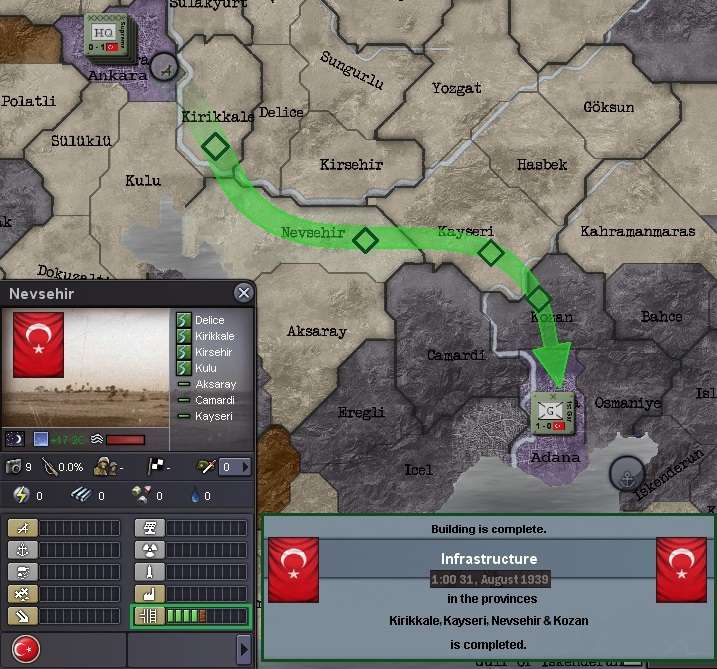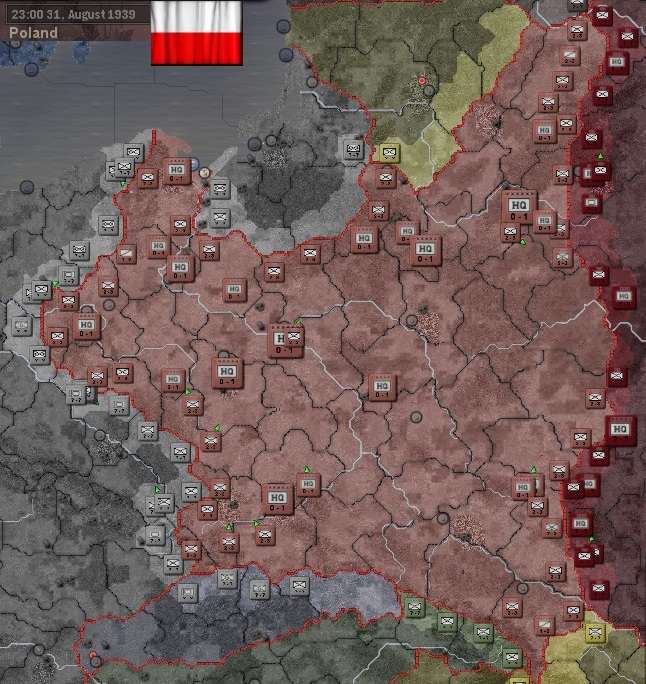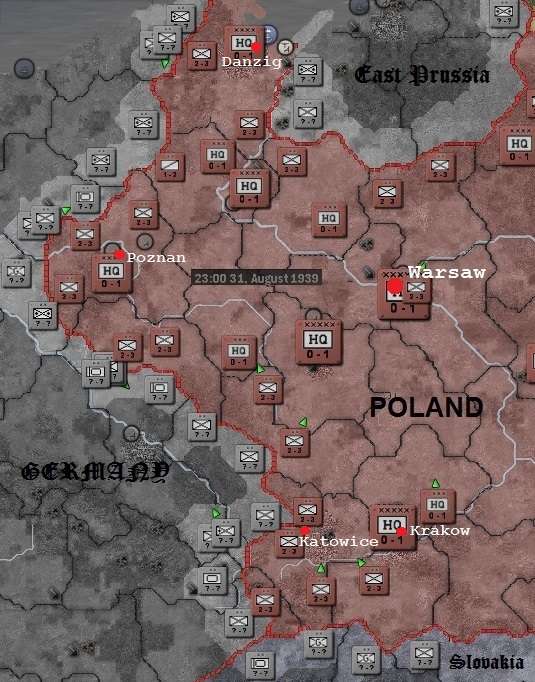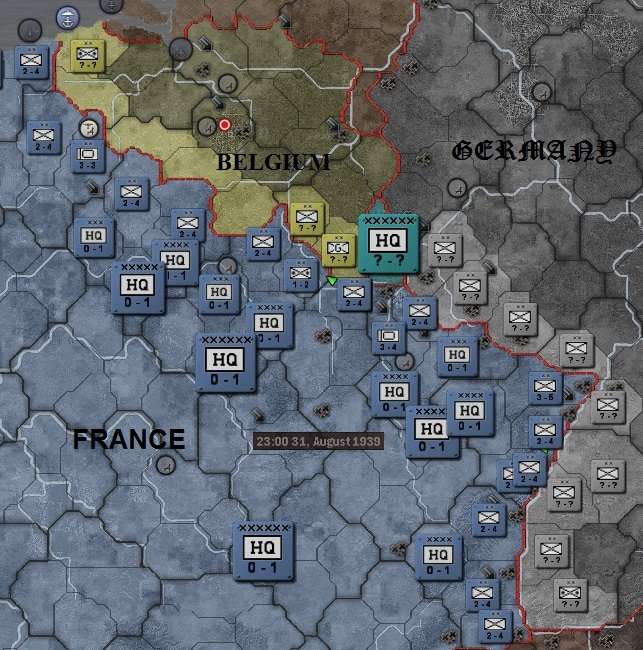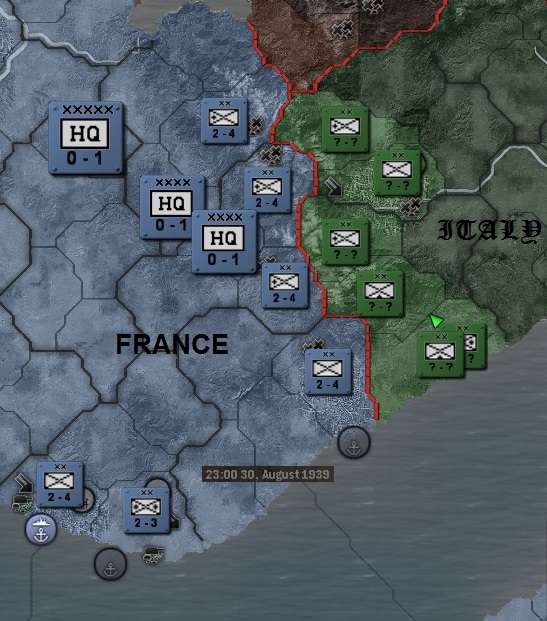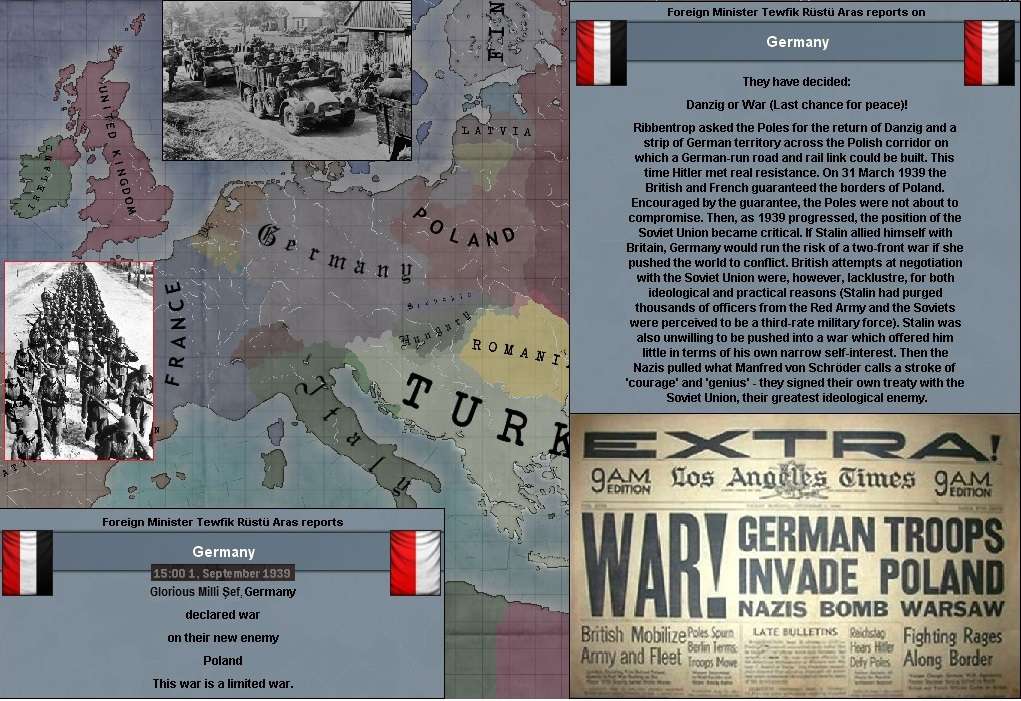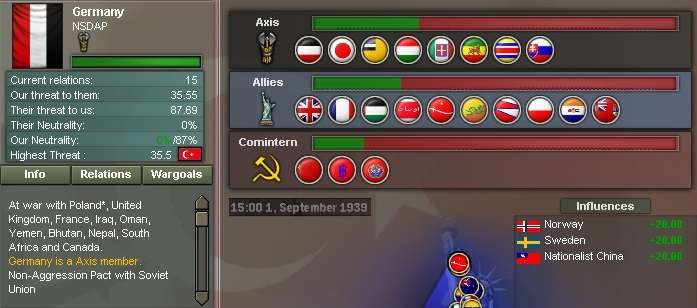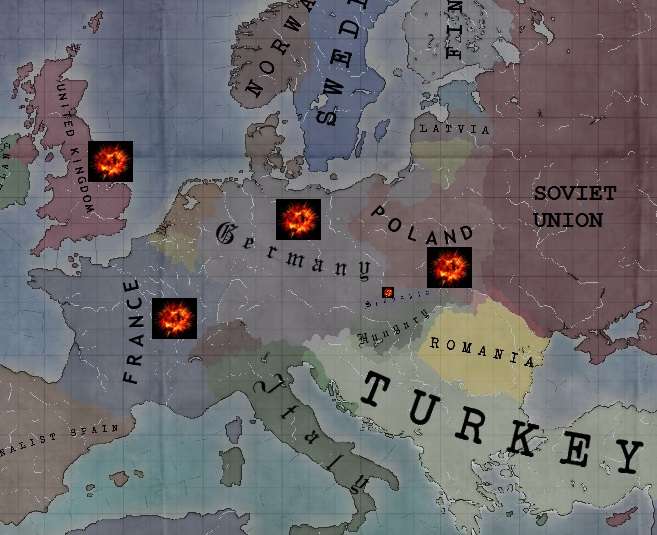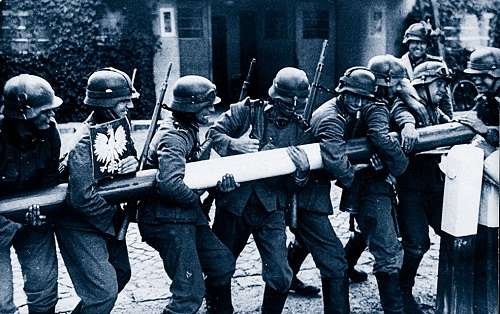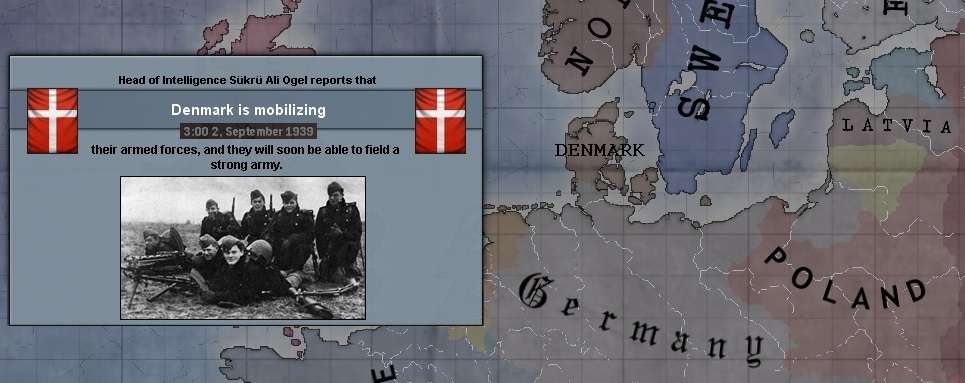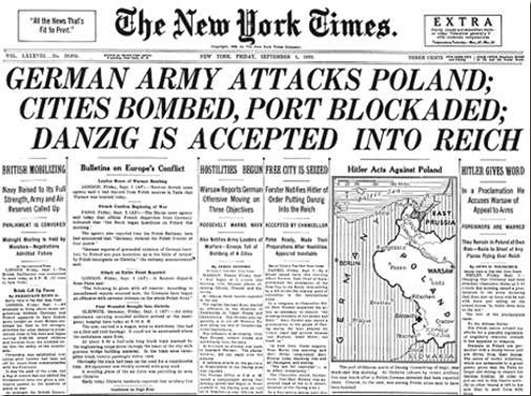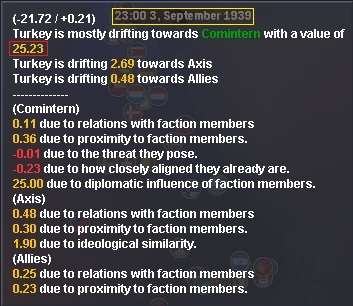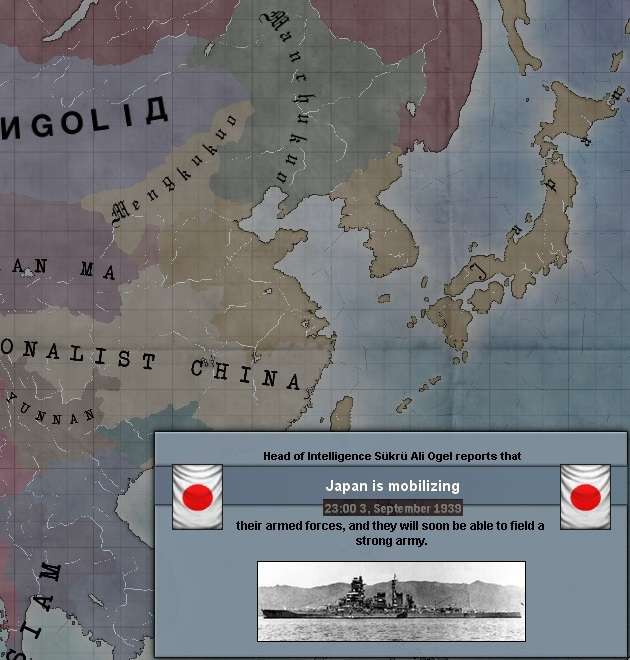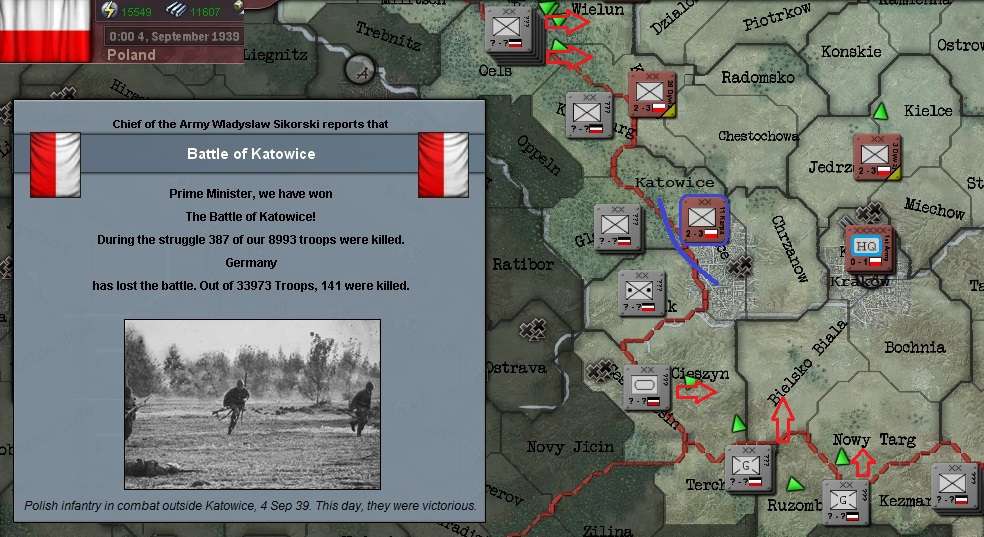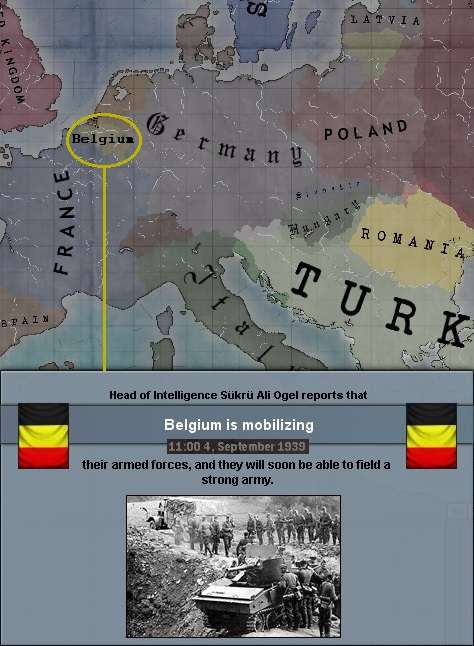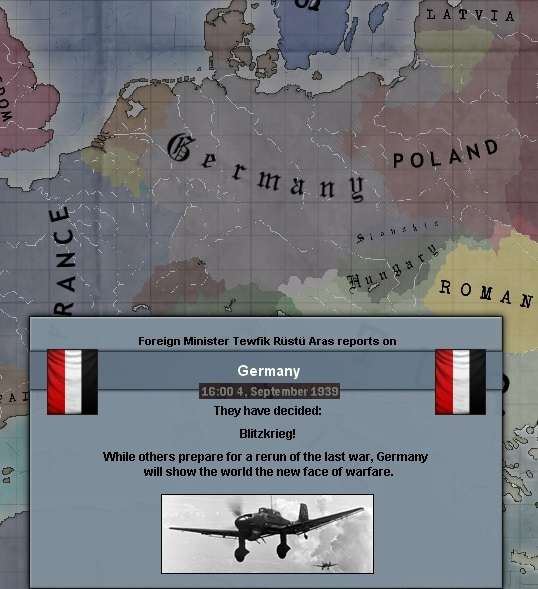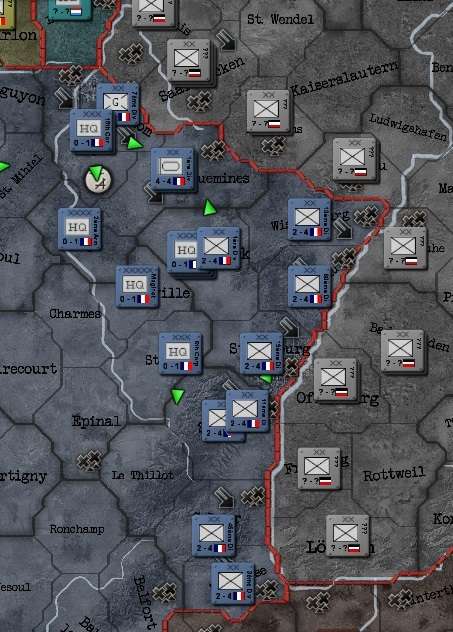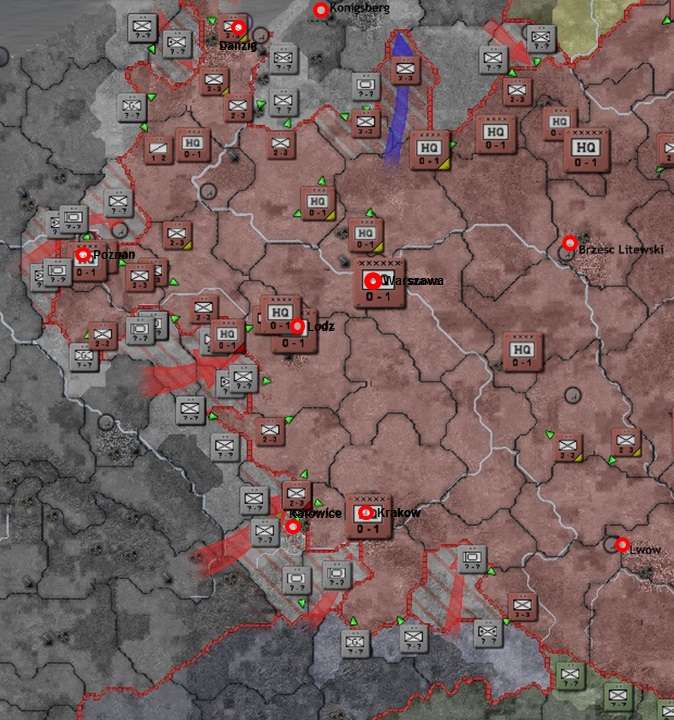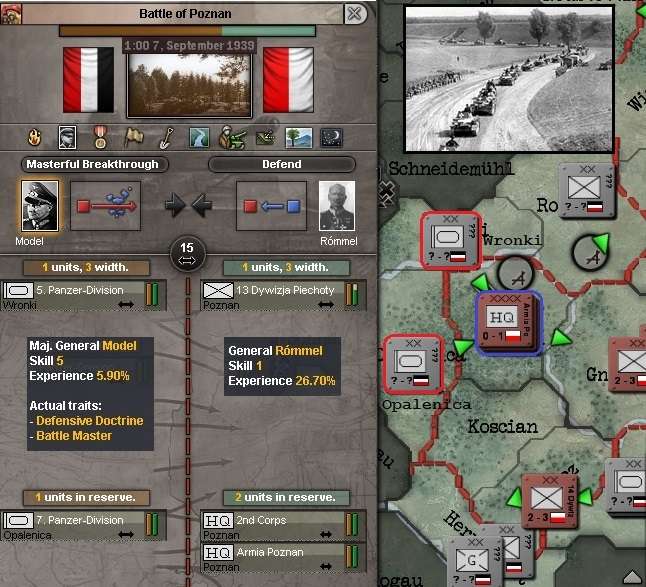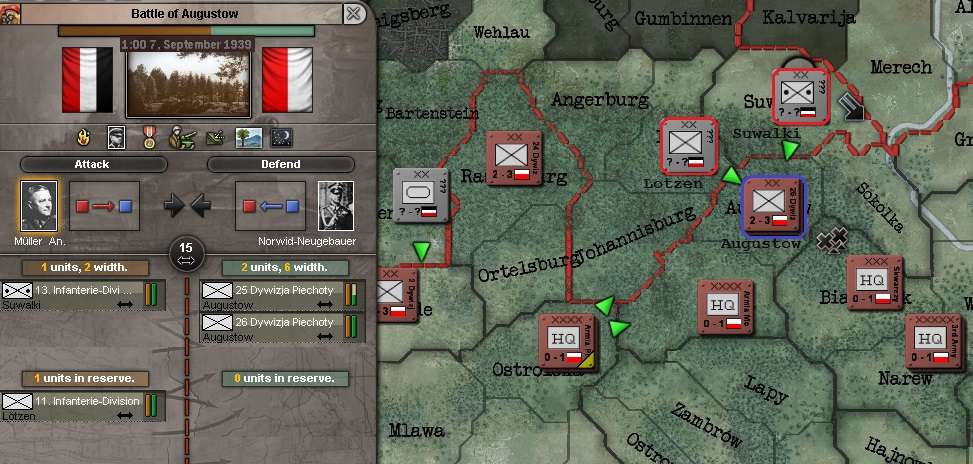Chapter 63: Special War Edition (31 August – 7 September 1939)
[Ed: I forgot I had stopped at 30 rather than 31 Aug in the last issue. It allows for some last-minute diplomacy, mainly between Britain and Germany, to be conducted. Alas, in vain. The inevitable hammer will soon fall heavily on our brave Polish friends.]
31 Aug 39 – War’s Eve
The final tracks are laid for the new
Ankara-Adana Railway upgrade in the very early hours of 31 Aug. A later project would be to improve communication links across to Iran, but that will have to wait for now. For now, the urgent construction of additional air defences continues, as it will be a long time before we are likely to have access to decent fighter licenses.
British Ambassador Nevile Henderson has flown back to Berlin late the night before with his government's official position on Poland, which he presents to Hitler first thing
[in this ATL] on the morning of Thursday 31 August. As relayed by our French network, Britain is prepared to take Hitler's proposals as “subjects for discussion” and agrees there must be settlement of differences between Germany and Poland, but notes that everything turned “upon the nature of the settlement and the method by which it is to be reached.” Germany is reminded that “His Majesty's Government have obligations to Poland by which they are bound and which they intend to honour. They could not, for any advantage offered to Great Britain, acquiesce in a settlement which put in jeopardy the independence of a State to whom they have given their guarantee.”
Britain suggests the next step “should be the initiation of direct discussions between the German and Polish Governments on a basis which would include the principles stated above, namely, the safeguarding of Poland's essential interests and the securing of the settlement by an international guarantee.” The reply concludes with a warning that failure to reach a settlement “would ruin the hopes of better understanding between Germany and Great Britain, would bring the two countries into conflict, and might well plunge the whole world into war. Such an outcome would be a calamity without parallel in history.”
Hitler reads a German translation of the British government's note and tells Henderson he is willing to negotiate, but Poland could not be reasonable. Henderson firmly replies that Hitler would have to choose between war with Poland or friendship with Britain. Hitler says he would prepare a written reply of his own.
Hitler's reply to Britain arrives later that morning. He demands the return of Danzig
and the Polish Corridor and writes that Germany could “no longer share” Britain's view that “these grave differences can be resolved by way of direct negotiations.” Despite this, Hitler writes, Germany is prepared to enter direct discussions “to give the British Government and the British nation a proof of the sincerity of Germany's intentions to enter into a lasting friendship with Great Britain.”
Nevile Henderson hands German Foreign Minister Constantin von Neurath the British government's reply that afternoon. “His Majesty's Government repeat that they reciprocate the German Government's desire for improved relations, but it will be recognised that they could not sacrifice the interests of other friends in order to obtain that improvement”, the note explains. “They fully understand that the German Government cannot sacrifice Germany's vital interests, but the Polish Government are in the same position and His Majesty's Government believe that the vital interests of the two countries are not incompatible.” The note expresses “reservation in regard to the statement of the particular demands put forward” by Germany, but says the German proposals would be “fully examined” during discussions.
Clearly, some time that evening Hitler issued orders to attack Poland the next day. At 6.15pm German Foreign Minister von Neurath meets with Polish ambassador Józef Lipski, more than five hours after Lipski had requested an audience. Lipski says the Polish government would be making a formal reply about direct negotiations in the next few hours. Neurath asks him if he is empowered to negotiate, and when Lipski replies that for the time being he is not, Neurath dismisses him. Lipski returns to the embassy and finds that his telephone line has been cut.
Later that night, in a false flag operation, Nazis posing as Poles seize the Gleiwitz radio station and broadcast an anti-German message in Polish (there will be other false flag operations the next day: they must have studied Turkey’s invasion of Bulgaria in 1937, right at the start of the Great Expansion). At 2100, German radio interrupts regular programming to present the government's 16-point proposal for Poland. The demand for the restoration of Danzig to the Reich is maintained, but the question of the Polish Corridor is now to be settled by a plebiscite. Warsaw never heard the proposal because communications between the two countries had been cut off. And by then, German forces were already deploying into their starting off positions on the Polish border anyway. It was all for show.
(2:24)
This Means War! More “Marxist Propaganda” from the Turkish Communications team.
Reports come in late that night from our observers in Poland and our network of agents in France. The key dispositions of forces are shown below – as it happens, the day before war is declared.
It transpires that Poland’s forces are fairly evenly distributed between their Soviet and German border areas (including East Prussia in the latter). While this may be a prudent reaction to the Nazi-Soviet Pact and the direct threat posed by the Soviets, it means that Poland is already paying the penalty for a two-front war. If Germany attacks first, those forces in the east will take a long time to be deployed to the west. Almost all the Polish units are ‘triangular’ infantry divisions with 3xINF each. There don’t seem to be any support (artillery, AT or AA) brigades among them. There are a few scattered cavalry divisions, but no visible armoured units. While it is hard to tell the full strength of the German units deployed on the border, there is a decent number of mechanised units in evidence.
Dispositions are a bit clearer on this map of the Polish-German border. The Polish line looks very porous, while concentrations of German panzers and motorised units can be seen north and south of the
Poznan salient and further to the south, near the Slovakian border and poised to strike towards
Katowice and
Krakow. Only on the central portion of the border with East Prussia (north of
Warsaw )does the Polish Army seem to outnumber its adversaries.
Concentrations of troops are not easily discernible in this map, but the
Maginot Line – which stretches up to the Belgian border – is continuously manned. French forces are also poised along the Belgian border, but that country remains neutral and the French-Belgian border unfortified. Although Belgium has mobilised, it will be a race to see whether (if the neutral country is attacked, as it was in the Great War) it can hold its relatively short border with Germany long enough for the French to reinforce and hold it.
This more detailed map of the Franco-Italian border shows the southern (less heavily fortified but mountain-based) version of the
Maginot Line is held mainly by a screen of elite mountain divisions. Similarly specialised Italian units face them.
1 Sep 39 – The Second Great War begins
The German invasion of Poland begins at 3pm. The Luftwaffe begins bombing raids on airfields, ships and troops. The first shots of the Second Great War (GW2) are fired. The series of battles collectively known as the
Battle of the Border begin in Poland. There is no action on the Franco-German border.
News Report: Berlin, Germany. Adolf Hitler broadcasts his declaration of war to the Wehrmacht at 1440: “The Polish state has refused the peaceful settlement of relations which I desired and appealed to arms”, Hitler declares. “In order to put an end to this lunacy I have no other choice than to meet force with force from now on. The German Army will fight the battle for the honour and the vital rights of a newborn Germany with hard determination.”
Intelligence Report, Rome Italy. As expected, Benito Mussolini orders his ambassador in Berlin to ask for a telegram releasing Italy from any obligation to take part in the war. At 2000 Hitler obliges with a cordial telegram saying he did not “expect to need Italy's military support in these circumstances.” They will remain neutral – for now, anyway.
News Report: London, UK. Neville Chamberlain announces on BBC Radio that Britain and Germany were at war [no delays for ultimatums etc in this ATL – straight into it, as with the Allies ‘an attack on one is an attack on all’.] “You can imagine what a bitter blow it is to me that all my long struggle to win peace has failed", Chamberlain says, sounding dispirited. “Yet I cannot believe that there is anything more or anything different that I could have done and that would have been more successful ... We and France are today, in fulfilment of our obligations, going to the aid of Poland, who is so bravely resisting this wicked and unprovoked attack upon her people. We have a clear conscience. We have done all that any country could do to establish peace, but a situation in which no word given by Germany's ruler could be trusted and no people or country could feel themselves safe had become intolerable. And now that we have resolved to finish it, I know that you will all play your part with calmness and courage.”
Neville Chamberlain addressed the House that evening and called it “a sad day for all of us, and to none is it sadder than to me. Everything that I have worked for, everything that I have hoped for, everything that I have believed in during my public life, has crashed into ruins. There is only one thing left for me to do; that is, to devote what strength and powers I have to forwarding the victory of the cause for which we have to sacrifice so much. I cannot tell what part I may be allowed to play myself; I trust I may live to see the day when Hitlerism has been destroyed and a liberated Europe has been re-established.”
Winston Churchill agreed that it was a sad day, but said “at the present time there is another note which may be present, and that is a feeling of thankfulness that, if these great trials were to come upon our Island, there is a generation of Britons here now ready to prove itself not unworthy of the days of yore and not unworthy of those great men, the fathers of our land, who laid the foundations of our laws and shaped the greatness of our country. This is not a question of fighting for Danzig or fighting for Poland. We are fighting to save the whole world from the pestilence of Nazi tyranny and in defence of all that is most sacred to man.”
A King’s Speech. At 9pm, King George VI addressed the British Empire by radio. “For the second time in the lives of most of us we are at war”, the King said. “Over and over again we have tried to find a peaceful way out of the differences between ourselves and those who are now our enemies. But it has been in vain ... The task will be hard. There may be dark days ahead and war is no longer confined to the battlefield but we can only do the right as we see the right and reverently command our cause to God. If one and all be resolutely faithful today, ready for whatever service and sacrifice it may demand, with God's help we shall prevail.”
News Report: Washington DC, US. President Franklin D. Roosevelt says at a press conference that “every effort” would be made by his administration to stay out of the war.
So, as Hitler predicted this will start as a limited, if not localised war. Germany and its puppet Slovakia are at war with the entire Allied faction. Their non-aggression pact with the Soviets is in force.
Hitler appeared before the Reichstag soon after 10pm to explain his decision. Those in the audience who didn't notice that Hitler was wearing a field-grey uniform instead of his usual brown jacket would have done so after he declared toward the end: “From now on I am just the first soldier of the German Reich. I have once more put on that coat that was the most sacred and dear to me. I will not take it off again until victory is assured, or I will not survive the outcome.”
The Turkish Government, Armed Forces and People hope to hold Hitler to that promise and see him die in that field-grey uniform. But if that is to happen, many lives, much treasure and untold suffering are likely to be the cost. First, we will see if the gallant Poles, supported by their bold French and British allies who will undoubtedly rush to their aid while Germany is occupied in the east, can put Hitler back in his place. Though their early dispositions and the reputed might of the Wehrmacht suggest there is not much time to save them.
Europe, 1 Sep 39. So far, in Europe itself, the war is indeed limited:
Germany and its puppet Slovakia, against Poland and its British and
French allies. Though already large, it is not a global war by any
stretch. The miscellaneous non-European Allied faction members do
not yet make it so. And the only land fighting of any note is on the
German-Polish border.
As fighting erupts along the border, German troops take part in their
traditional border-crossing dismantling ritual. Although this time, their
adversary has chosen to fight. There must be an enormous stash of
looted border boom-gates somewhere in a Reich warehouse. And
probably a Reichskommissioner for them as well!
A series of other countries from both neutrals (though pro-Allied) and the Axis bloc begin mobilising, though none join in the war yet. The first to jump on the bandwagon is, of course, Ethiopia (Italy’s puppet)!
2 Sep 39
Fighting intensifies along the Polish border. Air raids are occurring, but we have no detailed reports as yet. We are not expecting the first comprehensive battlefield summaries from our observers for a few days yet and their focus will be on land dispositions. But the events in Poland have other smaller countries on Germany’s border worried – they start mobilising too.
As Americans get their morning papers, the momentous news of the night before is plastered all over them.
Danzig may have been ‘accepted into the Reich’, but the province still holds out against the Nazi aggressor.
Foreign Minister Aras reports that the predictions about the threat effect of Axis aggression have been fulfilled: the Axis threat has gone through the roof, with the power of Comintern alignment almost doubled over night. The people of the Glorious Union now see the Fascist menace for what it is. Even if Japan does try to peddle its lies again, it will not have the same net effect as before, while Comintern alignment should progress very smartly now.
3 Sep 39
Japan now mobilises, but it remains to be seen whether this will translate into their joining the fight any time soon. Kaya and Ögel get out their Japanese Cabinet dartboard and challenge each other to a ‘best of three’ match.
(1.24)
The news war has begun on both sides of the fight.
4 Sep 39
We receive our first direct battlefield report. One of our observers with the Polish 1st Army Group Headquarters in
Kraków (FM Bittner – SK1) was forward with the Polish 11th Division (MAJGEN Podhorski SK2) in the border city of
Katowice. After a fierce battle, the Poles won a brave but costly victory against more than three times their number of German attackers. However, to the south-west, the divisional commander reports his left flank is wide open – a three-province gap in front of
Krakow, through which German infantry and at least one light Panzer division are pouring.
Further to the north, our observer with Armia Poznan (commanded by the
Polish GEN Rómmel SK1) reports the Germans are attacking in heavy force to the north and south of
Poznan, with the thinly-held Polish line giving way. Reports from East Prussia are more optimistic, where Polish forces are on the offensive. But while that may boost morale, the war is not going to be won there. To the right of 11th Division, the Polish 28th Division reports a massive German concentration pouring into
Wielun on its right. The Polish border cannot possibly be held under these circumstances. The question remains as to whether additional forces from the east can support a fighting withdrawal in the west, though there is no useful river line to defend in the
Krakow sector facing west – only south.
Later that morning, Belgium is the next of Germany’s neighbours to get worried and mobilise.
Germany exercises the
Blitzkrieg Decision: the decision reduces German neutrality by 20 (it was already at zero), increases manpower by 200, and gives "revenge" modifier for 300 days. This modifier increases combat movement speed by 20%, organisation regain by 20%, and soft attack by 20%.
[Ed: OK, Germany gets this, Russia gets a couple of decisions to boost various factors, including manpower – like they need it! This gets the Turkish general staff and government thinking – doesn’t seem fair. The Glorious Union should also get some assistance under similar circumstances, such as being attacked by a major power, after certain cities (or % of them) fall, etc. Not unfairly, now, but when drastically threatened. Thoughts? I know some contributors have suggested adding MP in the past and I have said I wouldn’t do that. But – not as an advance grab, but under similar circumstances (scaled down) for the Turkish Motherland … Thoughts? Would people think I’ve betrayed my high ideals by introducing some commensurate events for Turkey? If you think Turkey should get something along these lines too, I have some initial ideas, but would welcome suggestions that imitate what my competitors receive, on a scale plausible for a large regional power?]
7 Sep 39
Both these reports are at received at 0100: they represent the known situation at nightfall the day before (6 Sep).
A more detailed report on the Franco-German border shows a bit of movement but no attacking by either side. Looks like Poland may be getting hung out to dry. The German side of the line looks well garrisoned and fortified.
The first six days of fighting in Poland show the Germans already making inroads.
Katowice has now fallen after earlier gallant resistance and
Krakow is under direct threat from fast-moving German panzers.
Poznan holds out, but German thrusts to its north and south will soon have it outflanked, with the danger of a pocket forming if the Polish do not escape in time. Another Panzer division is racing through in the south, in the large gap between
Krakow and
Lwow, with nothing nearby to stop them and the troops following up. In East Prussia, our observer with Armia Modlin (GEN Kurtrzeba SK1) advises a Polish advance in the centre has taken three provinces and is heading towards
Königsberg. The first Polish divisions from their eastern border can be seen approaching central Poland, but it looks like it could be too little, too late.
Danzig still holds out in the north.
Two contrasting battle reports tell the story of the first few days of the
Battle of the Border. By now,
Poznan itself is under heavy assault by 5 Pz Div, commanded by MAJGEN Model (SK5) with 7 Pz Div in reserve. GEN Rómmel (the Polish version, SK1) is clearly completely outmatched by Model and his
Masterful Breakthrough. While the Polish 13th Div fights bravely, this isn’t going to last long.
Inset: Armoured column from the German 5 Pz Div heads towards Poznan, 6 Sep 39.
Meanwhile, in the north (on the border with East Prussia) a German attack on
Augustow is meeting more resistance, though even there the pressure is telling. The main German strength (in numbers and armour) is clearly on the decisive Western border, while Poland looks just too weak there to provide much resistance for now. And by the time the eastern army arrives, the Germans will be streaming through and the Poles trying to construct hasty defences (without fortifications or entrenchments). Sadly, this looks more like a matter of days than weeks before Germany is victorious.
Coming Up: with the eyes of the world on Poland, we will trace the progress of the Nazi’s war of aggression. So far, on the French border, there is no indication of even a diversionary attack by France to try to distract the Germans – whose defences look quite solid in any case. It looks like it will soon be too late for Poland – it may already be so. Turkey for now sails under the newly invented ‘radar’ (a technology of which we have heard reports but do not have), working on its plans for defence against a threat that looks just as imposing as we had feared. Undaunted, the campaign to align to the Comintern and thereby gain the option of having a first line major power ally continues apace – so far without renewed Japanese interference. And will the Government prepare to enact wartime mobilisation laws to grant a manpower boost in case of armed attack or the loss of key territory to an aggressor?
[Ed: That is, engineer some mock events to be enacted if such happens – advice sought from my valued readership.]


